Cocoa
How to submit an article:
- Registered users can submit any published journal article that has a unique DOI (Digital Object Identifier) name or link to Research Hub.
- For example, you can paste the full DOI link:
https://doi.org/10.1109/5.771073or just the DOI name:10.1109/5.771073into the field above and click submit. - The person who is first to submit a valid article to Research Hub will forever be credited for it, and every article submission earns you +6 Research Points.
Also known as: Cacao, Cocoa Bean, Theobroma Cacao
Sub-Topics:
Related Topics
Published research studies are articles that present the findings of original research that has undergone a peer-review process and has been made publicly available in scholarly journals, books or other media.
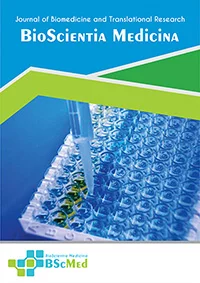
The Effect of Giving Dark Chocolate on Reducing Menstrual Pain in Primary Dysmenorrhoea in Employees of Cabangbungin General Hospital, Bekasi Regency in 2023
2023 Jun 08 Bioscientia Medicina : Journal of Biomedicine and Translational Research Sa’idah SN, Maulida Lathifah , Evita Anindya Bestari
Randomised Controlled Trial Period Pain Dark ChocolateDark chocolate decreases the severity of menstrual pain in female hospital employees.

Manufacture and Evaluation of Novel Chocolate for Girls' Dysmenorrhea
2023 Mar 01 Journal of Food and Dairy Sciences Shalaby, A, Moawad O, Mostafa M
Randomised Controlled Trial Ginger Chinese Cinnamon Dark Chocolate Iron Field Mint CinnamonCinnamon, ginger, and mint enhanced chocolates effectively reduce menstrual pain and improve blood iron levels without increasing body weight or negatively affecting cholesterol.
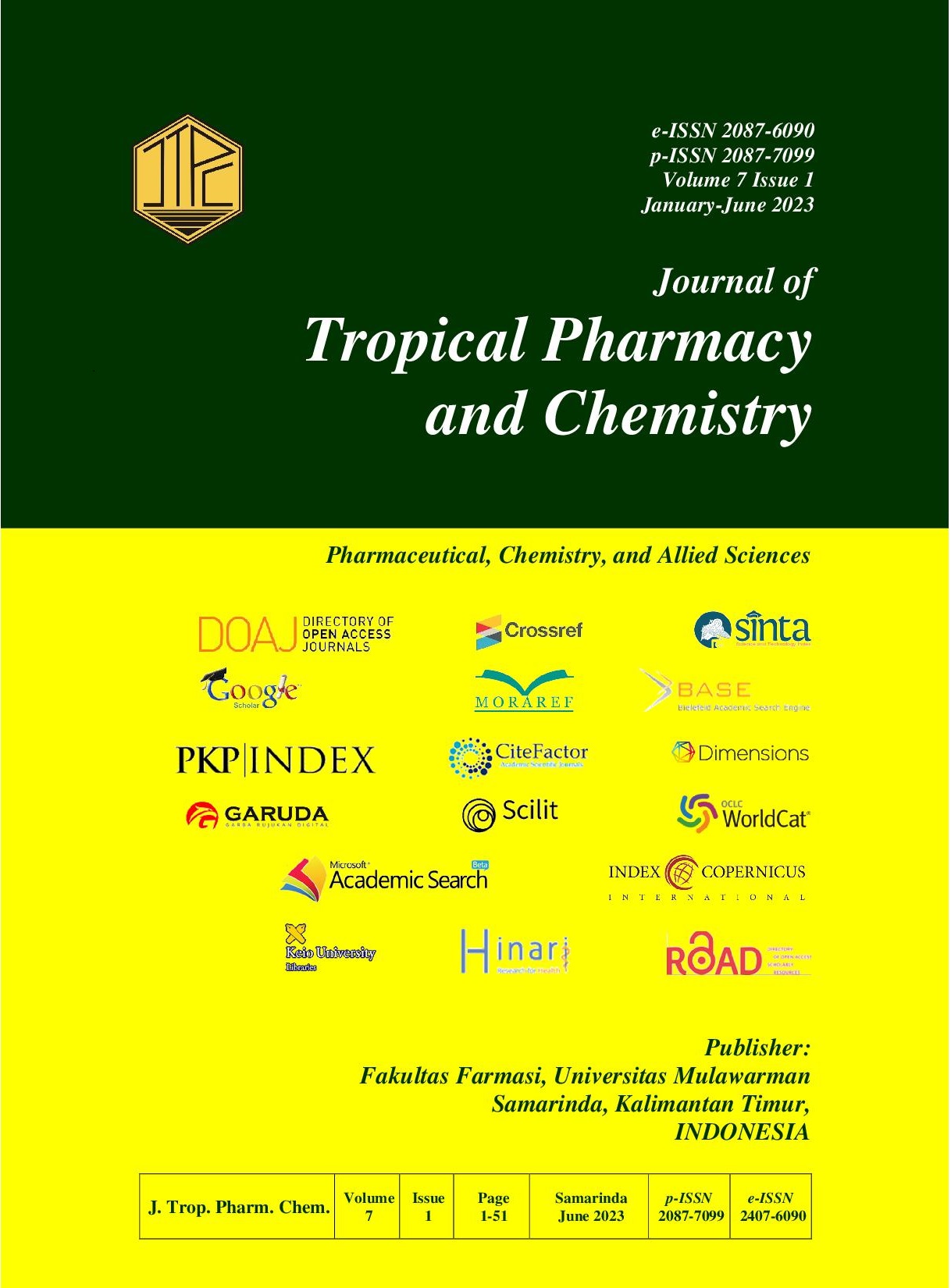
Effect of Combination of Dark Chocolate and Herbal Ingredients for Dysmenorrhea in Late Adolescents
2023 Jan 17 Journal of Tropical Pharmacy and Chemistry Azizah RNP, Anggreini P, Prasetya F
Randomised Controlled Trial Ginger Period Pain Dark Chocolate Honey SambilotoThe combination of dark chocolate with herbs could be one of the therapies for period pain.
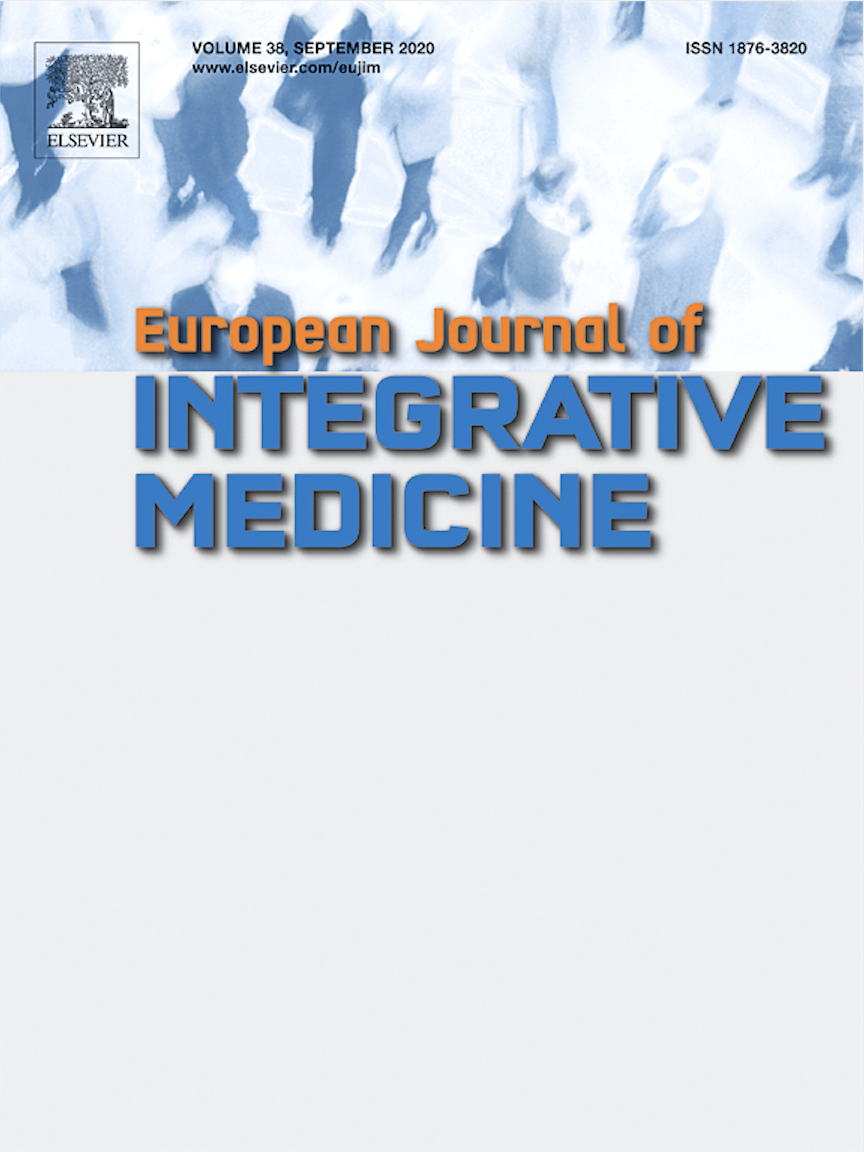
The effect of dark chocolate and music on pain and anxiety in young women with primary dysmenorrhea: Randomized controlled trial
2022 Dec European Journal of Integrative Medicine Karakuş Selçuk A, Baysal E
Randomised Controlled Trial Music Period Pain Dark ChocolateBoth dark chocolate and music medicine significantly reduced menstrual pain and anxiety in young women with period pain.
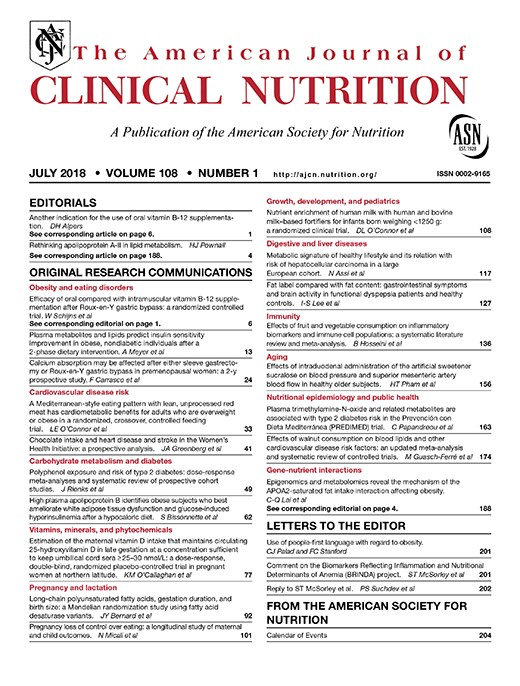
Effect of cocoa flavanol supplementation for the prevention of cardiovascular disease events: the COcoa Supplement and Multivitamin Outcomes Study (COSMOS) randomized clinical trial
2022 Jun The American Journal of Clinical Nutrition Sesso HD, Manson JAE, Aragaki AK, Rist PM, Johnson LG, Friedenberg G, et al.
Randomised Controlled Trial Cardiovascular Disease CocoaCocoa extract supplementation in older adults reduced cardiovascular disease related death rates, but did not significantly lessen total cardiovascular events.
Research insights are moderated by the Research Hub team and offer an at-a-glance overview of interesting research findings.

2023 Bioscientia Medicina : Journal of Biomedicine and Translational Research
Dark chocolate decreases the severity of menstrual pain in female hospital employees.
Randomised Controlled Trial Dark Chocolate Period Pain
The Effect of Giving Dark Chocolate on Reducing Menstrual Pain in Primary Dysmenorrhoea in Employees of Cabangbungin General Hospital, Bekasi Regency in 2023
Sa’idah SN, Maulida Lathifah , Evita Anindya Bestari

2023 Journal of Food and Dairy Sciences
Cinnamon, ginger, and mint enhanced chocolates effectively reduce menstrual pain and improve blood iron levels without increasing body weight or negatively affecting cholesterol.
Randomised Controlled Trial Chinese Cinnamon Cinnamon Dark Chocolate Field Mint Ginger
Manufacture and Evaluation of Novel Chocolate for Girls' Dysmenorrhea
Shalaby, A, Moawad O, Mostafa M

2023 Journal of Tropical Pharmacy and Chemistry
The combination of dark chocolate with herbs could be one of the therapies for period pain.
Randomised Controlled Trial Dark Chocolate Ginger Honey Period Pain Sambiloto
Effect of Combination of Dark Chocolate and Herbal Ingredients for Dysmenorrhea in Late Adolescents
Azizah RNP, Anggreini P, Prasetya F

2022 European Journal of Integrative Medicine
Both dark chocolate and music medicine significantly reduced menstrual pain and anxiety in young women with period pain.
Randomised Controlled Trial Dark Chocolate Music Period Pain
The effect of dark chocolate and music on pain and anxiety in young women with primary dysmenorrhea: Randomized controlled trial
Karakuş Selçuk A, Baysal E

2022 The American Journal of Clinical Nutrition
Cocoa extract supplementation in older adults reduced cardiovascular disease related death rates, but did not significantly lessen total cardiovascular events.
Randomised Controlled Trial Cardiovascular Disease
Effect of cocoa flavanol supplementation for the prevention of cardiovascular disease events: the COcoa Supplement and Multivitamin Outcomes Study (COSMOS) randomized clinical trial
Sesso HD, Manson JAE, Aragaki AK, Rist PM, Johnson LG, Friedenberg G, et al.
Review Articles
Review articles summarise and critically evaluate the current state of research on a specific topic or field by synthesising multiple primary research studies.

Cocoa and cocoa bean shells role in human health: An updated review
2021 Oct Journal of Food Composition and Analysis Cinar Z, Atanassova M, Tumer TB, Caruso G, Antika G, Sharma S, et al.
Review Article CancerCocoa, including its often discarded shell, has promising potential in providing benefits to human health due to its high content of health-boosting phytochemicals.

The Health Effects of Chocolate and Cocoa: A Systematic Review
2021 Aug 24 Nutrients Tan TYC, Lim XY, Yeo JHH, Lee SWH, Lai NM
Systematic Review Cocoa Triglyceride ChocolateChocolate and cocoa product consumption significantly improved lipid profiles, but had no significant effect on other heath aspects such as cognitive function and blood pressure.

The effect of cocoa/dark chocolate consumption on lipid profile, glycemia, and blood pressure in diabetic patients: A meta‐analysis of observational studies
2021 Jun 05 Phytotherapy Research Darand M, Hajizadeh Oghaz M, Hadi A, Atefi M, Amani R
Systematic Review Blood Sugar LDL Type 2 Diabetes Dark Chocolate CocoaThe consumption of cocoa or dark chocolate can reduce low-density lipoprotein cholesterol and fasting blood sugar levels in diabetic patients.
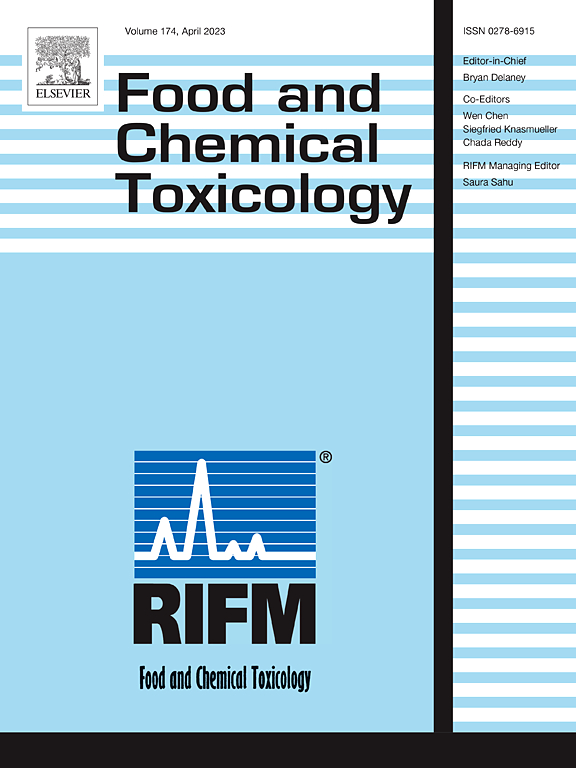
Impact of cocoa flavanols on human health
2021 May Food and Chemical Toxicology Martin M, Ramos S
Systematic Review Review Article Metabolic Syndrome Anti-Ageing Cardiovascular Disease CocoaCocoa flavanols exhibit health and aging benefits and may act as powerful agents in preventing chronic diseases such as cardiovascular and metabolic disorders, and cancer.

The effect of cocoa-rich products on depression, anxiety, and mood: A systematic review and meta-analysis
2021 May 10 Critical Reviews in Food Science and Nutrition Fusar-Poli L, Gabbiadini A, Ciancio A, Vozza L, Signorelli MS, Aguglia E
Systematic Review Meta-Analysis Depression Anxiety CocoaCocoa-rich products consumption can improve mood and affect in the short term.
Clinical Trials
Clinical trials are research studies that involve people and are conducted to evaluate the safety and efficacy of new treatments or interventions, such as drugs, medical devices, or behavioural therapies.

The Effect of Giving Dark Chocolate on Reducing Menstrual Pain in Primary Dysmenorrhoea in Employees of Cabangbungin General Hospital, Bekasi Regency in 2023
2023 Jun 08 Bioscientia Medicina : Journal of Biomedicine and Translational Research Sa’idah SN, Maulida Lathifah , Evita Anindya Bestari
Randomised Controlled Trial Period Pain Dark ChocolateDark chocolate decreases the severity of menstrual pain in female hospital employees.

Manufacture and Evaluation of Novel Chocolate for Girls' Dysmenorrhea
2023 Mar 01 Journal of Food and Dairy Sciences Shalaby, A, Moawad O, Mostafa M
Randomised Controlled Trial Ginger Chinese Cinnamon Dark Chocolate Iron Field Mint CinnamonCinnamon, ginger, and mint enhanced chocolates effectively reduce menstrual pain and improve blood iron levels without increasing body weight or negatively affecting cholesterol.

Effect of Combination of Dark Chocolate and Herbal Ingredients for Dysmenorrhea in Late Adolescents
2023 Jan 17 Journal of Tropical Pharmacy and Chemistry Azizah RNP, Anggreini P, Prasetya F
Randomised Controlled Trial Ginger Period Pain Dark Chocolate Honey SambilotoThe combination of dark chocolate with herbs could be one of the therapies for period pain.
Dark chocolate was combined with herbal ingredients consisting of turmeric, red ginger, moringa, sambiloto extract, and honey as a beverage (250 mL). —Jinnan C 29 Oct 2023

The effect of dark chocolate and music on pain and anxiety in young women with primary dysmenorrhea: Randomized controlled trial
2022 Dec European Journal of Integrative Medicine Karakuş Selçuk A, Baysal E
Randomised Controlled Trial Music Period Pain Dark ChocolateBoth dark chocolate and music medicine significantly reduced menstrual pain and anxiety in young women with period pain.

Effect of cocoa flavanol supplementation for the prevention of cardiovascular disease events: the COcoa Supplement and Multivitamin Outcomes Study (COSMOS) randomized clinical trial
2022 Jun The American Journal of Clinical Nutrition Sesso HD, Manson JAE, Aragaki AK, Rist PM, Johnson LG, Friedenberg G, et al.
Randomised Controlled Trial Cardiovascular Disease CocoaCocoa extract supplementation in older adults reduced cardiovascular disease related death rates, but did not significantly lessen total cardiovascular events.
Study Protocols
Published study protocols are detailed plans that outline the objectives, methodology, statistical analyses, and organisation of a research study that have been made publicly available for others to review and use as a reference.
Presentation Slides

Randomised Controlled Trial
Dark chocolate decreases the severity of menstrual pain in female hospital employees.
Sa’idah SN, Maulida Lathifah , Evita Anindya Bestari

Randomised Controlled Trial
Cinnamon, ginger, and mint enhanced chocolates effectively reduce menstrual pain and improve blood iron levels without increasing body weight or negatively affecting cholesterol.
Shalaby, A, Moawad O, Mostafa M

Randomised Controlled Trial
The combination of dark chocolate with herbs could be one of the therapies for period pain.
Azizah RNP, Anggreini P, Prasetya F

Randomised Controlled Trial
Both dark chocolate and music medicine significantly reduced menstrual pain and anxiety in young women with period pain.
Karakuş Selçuk A, Baysal E

Randomised Controlled Trial
Cocoa extract supplementation in older adults reduced cardiovascular disease related death rates, but did not significantly lessen total cardiovascular events.
Sesso HD, Manson JAE, Aragaki AK, Rist PM, Johnson LG, Friedenberg G, Copeland T, Clar A, Mora S, Moorthy MV, Sarkissian A, Carrick WR, Anderson GL
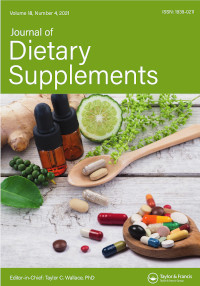
Randomised Controlled Trial
The proprietary herbal blend LN18178 significantly boosts testosterone levels, muscle strength and mid-upper arm circumference in young, healthy males.
Sreeramaneni PGA, Yalamanchi A, Konda MR, Cherukuri SHV, Maroon JC
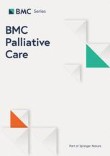
Clinical Study
Consuming chocolate with higher cocoa content can improve the nutritional status and functionality of older cancer patients in palliative care.
Vettori JC, da-Silva LG, Pfrimer K, Jordão AA, Louzada-Junior P, Moriguti JC, Ferriolli E, Lima NKC
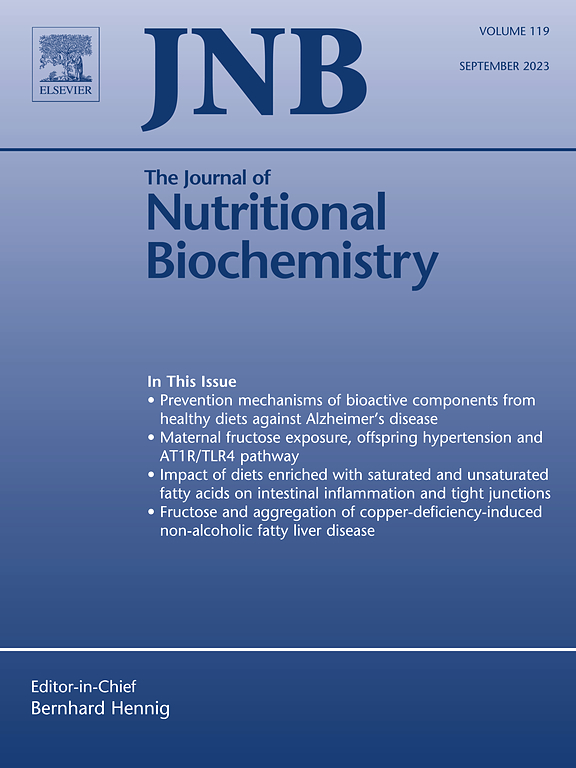
Randomised Controlled Trial
Dark chocolate exerts prebiotic effects and may improve negative emotional states via the gut-brain axis.
Shin JH, Kim CS, Cha L, Kim S, Lee S, Chae S, Chun WY, Shin DM

Experimental Study
Cocoa bean husk, a by-product of cocoa processing, exhibits potent antioxidant and anticancer effects on prostate cancer cells due to its high phenolic compound content.
Choi J, Yang C, Lim W, Song G, Choi H

Review Article
Cocoa, including its often discarded shell, has promising potential in providing benefits to human health due to its high content of health-boosting phytochemicals.
Cinar Z, Atanassova M, Tumer TB, Caruso G, Antika G, Sharma S, Sharifi-Rad J, Pezzani R

Systematic Review
Chocolate and cocoa product consumption significantly improved lipid profiles, but had no significant effect on other heath aspects such as cognitive function and blood pressure.
Tan TYC, Lim XY, Yeo JHH, Lee SWH, Lai NM

Systematic Review
The consumption of cocoa or dark chocolate can reduce low-density lipoprotein cholesterol and fasting blood sugar levels in diabetic patients.
Darand M, Hajizadeh Oghaz M, Hadi A, Atefi M, Amani R

Systematic Review
Cocoa-rich products consumption can improve mood and affect in the short term.
Fusar-Poli L, Gabbiadini A, Ciancio A, Vozza L, Signorelli MS, Aguglia E

Systematic Review
Cocoa flavanols exhibit health and aging benefits and may act as powerful agents in preventing chronic diseases such as cardiovascular and metabolic disorders, and cancer.
Martin M, Ramos S
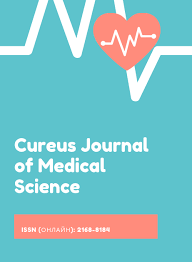
Cohort Study
Women who eat chocolate more frequently tend to express less interest in sex, suggesting a potential connection between chocolate consumption and sexual interest.
Golomb BA, Berg BK

Cocoa polyphenols promote gut health by favorably altering gut microbiota composition and producing secondary bioactive metabolites with antioxidant and anti-inflammatory properties.
Sorrenti V, Ali S, Mancin L, Davinelli S, Paoli A, Scapagnini G
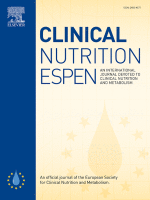
Systematic Review
Our findings showing that chocolate and flavonoid intake significantly improves the flow-mediated dilatation, provide mechanistic evidence to support a causal link between chocolate and flavonoid intake and lowered CVD risk.
Ebaditabar M, Djafarian K, Saeidifard N, Shab-Bidar S

Systematic Review
Cocoa consumption significantly reduces markers of oxidative stress in the adult population, affirming its important role in the human metabolic pathway.
Mehrabani S, Arab A, Mohammadi H, Amani R

Review Article
Cocoa and cocoa products, enriched with polyphenols, have potential health benefits including enhanced vascular function, cancer prevention, and improvement in learning and memory.
E S, Panjikkaran ST, L SC, R RP
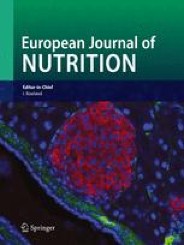
Systematic Review
Consumption of chocolate shows a possible slight reduction in risk for coronary heart disease and stroke, with no association with other chronic diseases studied.
Morze J, Schwedhelm C, Bencic A, Hoffmann G, Boeing H, Przybylowicz K, Schwingshackl L
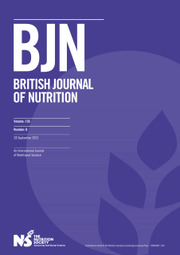
Randomised Controlled Trial
Dark chocolate with high cocoa content can affect colonic functionality and stimulate certain brain regions in healthy adults.
Fox M, Meyer-Gerspach AC, Wendebourg MJ, Gruber M, Heinrich H, Sauter M, Woelnerhanssen B, Koeberle D, Juengling F

The consumption of epicatechin, plentiful in foods like cocoa, positively influences memory, executive function, and processing speed, particularly in older adults.
Haskell-Ramsay C, Schmitt J, Actis-Goretta L

Systematic Review
Subgroup analysis suggests consuming at least 30 grams of dark chocolate per day for a trial period between four to eight weeks may lead to reductions in weight and body mass index.
Kord-Varkaneh H, Ghaedi E, Nazary-Vanani A, Mohammadi H, Shab-Bidar S
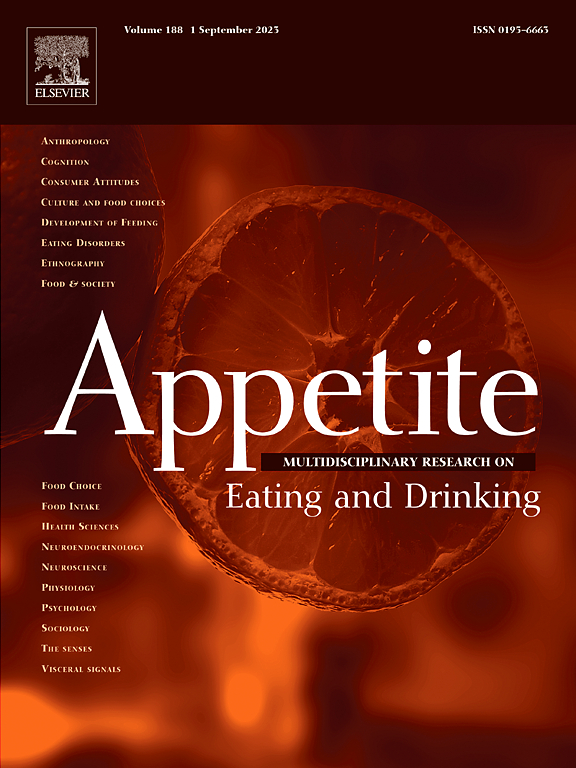
Randomised Controlled Trial
Dark chocolate reduces subsequent food intake in postmenopausal women more effectively than milk and white chocolate.
Marsh CE, Green DJ, Naylor LH, Guelfi KJ

Systematic Review
Cocoa consumption has strong beneficial impacts on cardiovascular health, reducing blood pressure, improving vascular function, and modulating lipid and glucose metabolism.
Ludovici V, Barthelmes J, Nägele MP, Enseleit F, Ferri C, Flammer AJ, Ruschitzka F, Sudano I
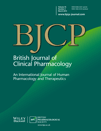
Review Article
Cocoa and chocolate, rich in antioxidant molecules like epicatechin, enhance brain health, stimulate brain perfusion, and reduce the risk of Alzheimer's disease and stroke.
Nehlig A

Systematic Review
Regular chocolate or cocoa consumption, rich in flavan-3-ols, has been associated with improved insulin resistance and blood vessel function, suggesting potential cardiovascular benefits.
Hooper L, Kay C, Abdelhamid A, Kroon PA, Cohn JS, Rimm EB, Cassidy A
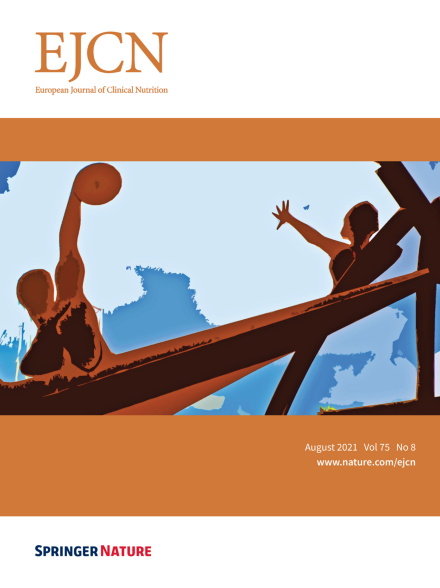
Meta-Analysis
Consumption of dark chocolate and cocoa products has been shown to significantly reduce serum levels of low-density lipoprotein (LDL) and total cholesterol (TC), indicating potential cardiovascular benefits.
Tokede OA, Gaziano JM, Djoussé L
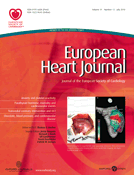
Cohort Study
Chocolate consumption appears to lower cardiovascular disease risk, in part through reducing blood pressure.
Buijsse B, Weikert C, Drogan D, Bergmann M, Boeing H
Executive Summary
Write an executive summary in the form of a blog article on the topic of "Research into Chinese medicine treatment for Cocoa" summarising the research below and using language that can be easily understood by patients and avoiding medical jargon using a professional and caring tone of voice.
Write an executive summary in the form of a blog article on the topic of "Researched Chinese medicine treatments for Cocoa" summarising the research below in an objective and easy to understand way, and using language that can be easily understood by patients. Group the article into Chinese medicine treatments first, followed by nutrition and other treatments. Avoid using medical jargon and use a professional and caring tone of voice.
Write me a concise but easy to understand executive summary on the topic of "Chinese medicine treatments for Cocoa" based on the following research that I will give you. Your summary should be 2 paragraphs long in Australian English spelling and include references to the studies.
A Randomised Controlled Trial published in 2023 in the journal Bioscientia Medicina : Journal of Biomedicine and Translational Research found that Dark chocolate decreases the severity of menstrual pain in female hospital employees. The researcher undertook an experimental study with 32 female employees of the Cabangbungin General Hospital, Bekasi Regency, as participants. After being selected, these subjects were systematically analyzed in both singular and joint approaches using SPSS version 25. The results supported the study's initial hypothesis that dark chocolate can alleviate menstrual pain. The statistical test results used confirm a significant effect of dark chocolate on dysmenorrhea, demonstrating a fundamental link between the consumption of dark chocolate and the easing of menstrual pain in subjects.
A Randomised Controlled Trial published in 2023 in the journal Journal of Food and Dairy Sciences found that Cinnamon, ginger, and mint enhanced chocolates effectively reduce menstrual pain and improve blood iron levels without increasing body weight or negatively affecting cholesterol. The methodology of the study involved a sample of 48 female student volunteers, aged 18-25, from Mansoura University who were experiencing dysmenorrhea. These volunteers were divided into eight groups of six and each group was given a different type of chocolate: regular chocolate, chocolate without herbal powder, chocolate with cinnamon powder, chocolate with cinnamon oil, chocolate with ginger powder, chocolate with ginger oil, chocolate with mint powder, and chocolate with mint oil. Discussion of the results demonstrated that the consumption of chocolates supplemented with cinnamon, ginger, and mint powders and their respective essential oils led to a significant improvement in participants' hemoglobin scores compared to a control group which consumed normal chocolate. Furthermore, it was found that these chocolates had a positive influence on serum total cholesterol, triglycerides, high-density lipoprotein, and low-density lipoprotein scores. Importantly, chocolate consumption did not lead to an increase in the participants' body mass index, proving that these chocolate variants could reduce menstrual pain and lift blood iron levels without instigating weight gain or having adverse effects on cholesterol levels.
A Randomised Controlled Trial published in 2023 in the journal Journal of Tropical Pharmacy and Chemistry found that The combination of dark chocolate with herbs could be one of the therapies for period pain. This test was conducted on 30 respondents who were divided into three groups, namely the positive control group (K), dark chocolate (C), and a combination of dark chocolate with herbs (C+H). Dark chocolate was combined with herbal ingredients consisting of turmeric, red ginger, moringa, sambiloto extract, and honey as a beverage 250 mL. The study is quantitative research with quasi-experimental method. Pain measurement using the Numeric Rating Scale (NRS) sheet was given before and 2 hours after treatment. The data was analyzed using paired t-test. State the results of the values obtained the combination of dark chocolate and herbs showed a significant reduction in pain before and after treatment (p<0.05).
A Randomised Controlled Trial published in 2022 in the journal European Journal of Integrative Medicine found that Both dark chocolate and music medicine significantly reduced menstrual pain and anxiety in young women with period pain. Mean menstrual pain intensity and mean anxiety level in the dark chocolate and music group decreased significantly after the intervention. No significant difference was observed in the control group. The difference between menstrual pain intensity and anxiety levels of the groups was tested by analysis of variance, and the standardized effect size calculated at 95% confidence level, and α = 0.05 was 0.35 and 0.42, respectively.
A Randomised Controlled Trial published in 2022 in the journal The American Journal of Clinical Nutrition found that Cocoa extract supplementation in older adults reduced cardiovascular disease related death rates, but did not significantly lessen total cardiovascular events. A randomized, double-blind, placebo-controlled trial was conducted on 21,442 US adults aged 60 or over, all of who were free of major cardiovascular disease and recently diagnosed cancer. The participants were assigned to either a cocoa extract supplement, which included 500 mg flavanols per day, or a placebo. The intervention phase ran from June 2015 to December 2020. The primary outcome was focused on the number of total cardiovascular events, including myocardial infarction, stroke, and cardiovascular death among others. The results showed that during a median follow-up of 3.6 years, there were 410 participants taking cocoa extract and 456 under placebo who had confirmed total cardiovascular events. Secondary endpoints showed reduced death due to cardiovascular disease for the cocoa extract supplement users. However, there was no significant impact on the incidence of total cardiovascular events. Conversely, a lower risk of total cardiovascular events was supported when analyses were censored at nonadherence. Overall, no safety concerns were raised during the trial.
A Randomised Controlled Trial published in 2022 in the journal Journal of Dietary Supplements found that The proprietary herbal blend LN18178 significantly boosts testosterone levels, muscle strength and mid-upper arm circumference in young, healthy males. In a randomized, double-blind, placebo-controlled study involving 120 male volunteers aged between 21 and 35 years, participants were arranged into three groups. Each group received a daily dose of either a placebo or 200 or 400 mg of LN18178 for a duration of 56 days. The primary focus of the study was to measure the potential increase in serum testosterone levels (both free and total). Secondary measures incorporated other hormones like dihydrotestosterone, cortisol, and Luteinizing hormone, as well as physical indicators such as hand grip strength and mid-upper arm circumference. Additionally, thorough checks were run pertaining to each participant's vital signs and clinical chemistry parameters in blood and urine to ensure product safety. After the intervention, both dosage levels of LN18178 significantly raised free testosterone levels. The higher dose group also showed noteworthy increases in total testosterone and luteinizing hormone levels. Meanwhile, the other hormone changes were found to be statistically insignificant. More importantly, the LN18178-400 group displayed significant enhancements in their hand grip strength and mid-upper arm circumference post-trial. The completion of the trial saw participants' vital signs and hemato-biochemical parameters within the normal range, suggesting that LN18178 is both safe and tolerable.
A Clinical Study published in 2022 in the journal BMC Palliative Care found that Consuming chocolate with higher cocoa content can improve the nutritional status and functionality of older cancer patients in palliative care. In the conducted study, 46 older cancer patients under palliative care were divided into three groups. The control group did not have a change in their diet (CG, 15 patients). The other two groups were given intervention foods—55% cocoa chocolate (IG1, 16 patients) and white chocolate (IG2, 15 patients)—for a duration of four weeks. The primary outcome was assessed based on changes in the patients' nutritional status, as measured by the Mini Nutritional Assessment tool. Other factors examined included food consumption, body measurements, body composition, laboratory parameters, and quality of life, using the European Organization for the Research and Treatment of Cancer instrument. Discussion of the results revealed that the group consuming 55% cocoa chocolate showed an improvement in nutritional scores and functionality, as evidenced by the Mini Nutritional Assessment and the quality of life scores respectively. On the other hand, the group consuming white chocolate displayed decreased oxidative stress levels. However, body composition and anthropometric measurements remained largely unchanged across all three groups.
A Randomised Controlled Trial published in 2022 in the journal The Journal of Nutritional Biochemistry found that Dark chocolate exerts prebiotic effects and may improve negative emotional states via the gut-brain axis. To assess the association between the mood-altering effects of dark chocolate and the gut microbiota, we performed fecal 16S rRNA sequencing analysis for the DC85 and CON groups. Gut microbial diversity was significantly higher in DC85 than CON (P<.05). Blautia obeum levels were significantly elevated and Faecalibacterium prausnitzii levels were reduced in DC85 compared to CON (P<.05). Furthermore, we found that the observed changes in negative affect scores were negatively correlated with diversity and relative abundance of Blautia obeum (P<.05).
A Experimental Study published in 2021 in the journal Molecular & Cellular Toxicology found that Cocoa bean husk, a by-product of cocoa processing, exhibits potent antioxidant and anticancer effects on prostate cancer cells due to its high phenolic compound content. The methodology of the study involved fractionating ethanol crude extract of cocoa bean husk (CBH) and comparing the total polyphenol and flavonoid content, as well as radical scavenging activities, of the various fractions. The phenolic compounds present in the ethanol ethyl acetate (EAF) and butanol (BF) fractions were further analysed using High-Performance Liquid Chromatography (HPLC). These fractions were then applied to prostate cancer cell lines PC3 and DU145 to ascertain their impact. The results indicated that the ethyl acetate fraction exhibited the highest phytochemical content and antioxidant activity, closely followed by the butanol fraction. The presence of abundant phenolic compounds, namely catechin, epicatechin, and procyanidin B, was observed in both fractions. Moreover, both fractions induced apoptosis and DNA fragmentation in the prostate cancer cells in a concentration-dependant manner, demonstrating their potential anticancer effects.
A Review Article published in 2021 in the journal Journal of Food Composition and Analysis found that Cocoa, including its often discarded shell, has promising potential in providing benefits to human health due to its high content of health-boosting phytochemicals. Cocoa, extracted from the seeds of Theobroma cacao L., contains a wide range of phytochemicals, with polyphenols being the most predominant. These compounds contribute to a variety of beneficial biological properties such as antioxidant, anti-inflammatory properties, among others. Furthermore, the cocoa bean shell, usually seen as a by-product, has started to attract attention for its own significant phytochemical content, emphasizing the potential health benefits it could also provide. The review gathered and examined existing literature investigating these health benefits. While the benefits of cocoa have been explored in relation to various health conditions like heart diseases and nervous system disorders, the focus of the review was to assess the role of cocoa and its potential therapeutic capacity in the context of cancer. Without revealing specifics, the review not only outlined the potential health benefits that cocoa and its shells can offer, but also delved into the potential mechanisms that enable such benefits, thus presenting a holistic view on the topic.
A Systematic Review published in 2021 in the journal Nutrients found that Chocolate and cocoa product consumption significantly improved lipid profiles, but had no significant effect on other heath aspects such as cognitive function and blood pressure. A systematic search was performed on academic databases such as MEDLINE, EMBASE, and the Cochrane Central Register of Controlled Trials. The researchers utilized a precise search strategy and keywords to gather the most relevant studies and evidence. The studies focused on a variety of health effects related to the consumption of chocolate and cocoa products, like their effects on skin, cardiovascular health, anthropometry, cognitive function, blood glucose levels, and overall quality of life. The research revealed considerable improvements in lipid profiles (particularly in triglycerides) among those who consumed chocolate or cocoa products, compared to controls. However, there were no significant differences observed in other outcome parameters related to skin health, blood pressure, cognitive function, anthropometry, blood glucose levels, and quality of life between the chocolate/cocoa consumption group and the control group. The subjects generally accepted chocolate well, with gastrointestinal disturbances and unpalatability reported as their main concerns.
A Systematic Review published in 2021 in the journal Phytotherapy Research found that The consumption of cocoa or dark chocolate can reduce low-density lipoprotein cholesterol and fasting blood sugar levels in diabetic patients. A systematic search of databases identified eight randomized controlled trials (RCTs) with 433 participants for meta-analysis. The results demonstrated a substantial reduction in LDL-c levels (WMD: −15.49 mg/dl) and FBS concentrations (WMD: −6.88 mg/dl) following cocoa/dark chocolate consumption. The study emphasizes the potential positive effects of cocoa/dark chocolate on the metabolic profile of diabetic individuals. The meta-analysis included RCTs focusing on cocoa/dark chocolate interventions in diabetic patients, with a significant pooled analysis showing reduced LDL-c and FBS levels. The findings suggest that incorporating cocoa/dark chocolate in the diet of diabetic individuals could be beneficial for managing lipid profile and glycemia. Further research is necessary to solidify these insights and understand the complete impact on metabolic health.
A Systematic Review published in 2021 in the journal Critical Reviews in Food Science and Nutrition found that Cocoa-rich products consumption can improve mood and affect in the short term. The study carried out a systematic review and meta-analysis in line with PRISMA guidelines to ascertain the effects of cocoa-derived food on depressive and anxiety symptoms, as well as positive and negative affect. Potential sources were found on Web of Knowledge and PsycINFO until April 3, 2020. Out of 761 documents screened, nine studies were picked. Two trials were involved in examining the long-term impact (>1 week) of cocoa consumption, two reviewed the short-term effects (3 days), and five studies were conducted in acute conditions (single administration). The results indicate that cocoa-rich products had a significant overall effect on reducing depressive and anxiety symptoms. There was also significant improvement in both positive and negative affect. The effect size in all meta-analyses was medium, while the heterogeneity was low. Despite these promising outcomes, the conclusions must be cautiously interpreted due to the short duration of the trials and the limited number of participants and studies included in the meta-analyses.
A Systematic Review published in 2021 in the journal Food and Chemical Toxicology found that Cocoa flavanols exhibit health and aging benefits and may act as powerful agents in preventing chronic diseases such as cardiovascular and metabolic disorders, and cancer. This research primarily relies on a comprehensive review of numerous human studies conducted over the past two decades. These studies provided significant data related to the health effects of cocoa intake and its impact on various chronic diseases. The studies encompassed different demographics and health conditions. Though most studies indicate beneficial effects of cocoa on health and prevention of chronic diseases, the results exhibit some inconsistency. Different studies suggest various mechanisms of action for cocoa, but these potential pathways are still not completely understood. Also, crucial issues like recommending cocoa consumption to healthy subjects or patients, determining the appropriate dosage, or the period of intake remain unresolved. Despite these unclarities, the potential of cocoa use to decrease the risk for certain chronic diseases and improve general health and quality of life is emphasized.
A Cohort Study published in 2021 in the journal Cureus Journal of Medical Science found that Women who eat chocolate more frequently tend to express less interest in sex, suggesting a potential connection between chocolate consumption and sexual interest. The study involved 723 adults from Southern California, both men and women over 20 years old. Participants provided information about how often they ate chocolate per week and rated their interest in sex on a scale from 0 to 10. The researchers used regression analysis, adjusting for potential factors that might influence the results, to explore the relationship between chocolate consumption frequency and sex interest. They also examined differences based on gender and age. The overall findings indicated that individuals who consumed chocolate more frequently reported lower interest in sex. This relationship was particularly strong in women, where chocolate consumption frequency emerged as the most influential predictor of sex interest. Surprisingly, the trend was not observed in men, although a slight connection was noted in younger men. The study suggests that the common idea of chocolate substituting for or satisfying the need for sex in women might explain the observed patterns.
A published in 2020 in the journal Nutrients found that Cocoa polyphenols promote gut health by favorably altering gut microbiota composition and producing secondary bioactive metabolites with antioxidant and anti-inflammatory properties. The study revolves around observing the effects of dietary intake of cocoa polyphenols, bioactive compounds with antioxidant and anti-inflammatory properties, on gut microbiota. These polyphenols have poor absorption in the gut and hence, rarely enter the systemic circulation in their natural forms. Instead, through a bidirectional interaction with the gut microbiota, they stimulate the proliferation of beneficial bacteria and inhibit the growth of harmful ones, thereby acting as a prebiotic. The resulting metabolites from this interaction are bioavailable, and these enter the circulation to reach target organs. The metabolites exhibit substantial antioxidant and anti-inflammatory activities, which improve gut health. These actions augment immunity and reduce the risk of many diseases, documenting a notable health-protective potential of cocoa polyphenols, routed via modulation of gut microbiota composition.
A Systematic Review published in 2020 in the journal Clinical Nutrition ESPEN found that Our findings showing that chocolate and flavonoid intake significantly improves the flow-mediated dilatation, provide mechanistic evidence to support a causal link between chocolate and flavonoid intake and lowered CVD risk. This meta-analysis identified 23 studies that randomly assigned participants to dark chocolate, cocoa, or flavonoid in comparison with control groups in acute or short-term chronic interventions. At the end of our meta-analysis, we found a protective effect of acute and chronic consumption of dark chocolate and flavonoids on FMD. Greater improvement was seen in higher doses (>20 day) of chronic consumption of dark chocolate with more than about one month. A non-linear effect of acute consumption of dark chocolate and flavonoids on FMD was also found.
A Systematic Review published in 2020 in the journal Complementary Therapies in Medicine found that Cocoa consumption significantly reduces markers of oxidative stress in the adult population, affirming its important role in the human metabolic pathway. This study systematically reviewed interventional studies to determine the impact of cocoa consumption on oxidative stress markers in adults. Numerous databases, including PubMed, Cochrane's library, Science Direct, Scopus, Google scholar and ISI web of science, were searched for all relevant literature up until March 2019. The Jadad scale was utilized to grade the quality of each study. Out of 1402 studies, 48 met the inclusion criteria for the systematic review and 16 were selected for meta-analysis. The pooled data from the random-effect model provided evidence that cocoa consumption effectively lowered malondialdehyde and 8-iso-prostaglandin F2α, but no significant changes were noted in other markers of oxidative stress. The results underscored cocoa's essential function in the human metabolic process by its potential to decrease oxidative stress.
A Review Article published in 2019 in the journal Agricultural Reviews found that Cocoa and cocoa products, enriched with polyphenols, have potential health benefits including enhanced vascular function, cancer prevention, and improvement in learning and memory. The authors carried out an extensive review of the nutritional profile of cocoa beans, focusing on the high content of carbohydrates, protein, fat, fiber, and minerals. Significantly, they pinpointed bioactive compounds, especially polyphenols (flavonoids and nonflavonoids), as key constituents, attributing to cocoa its antioxidant and anti-inflammatory properties. Emphasis was placed on the consumption of flavonoid-rich chocolates and its potential health benefits. The findings of the research underscore multiple health benefits from cocoa's flavonoids. These include an improvement in peripheral vascular function and a suppression of molecular processes linked with cancer. Notably, the flavonoids have been observed to heighten insulin sensitivity and reduce oxidative damage. They also seem to concentrate in brain areas associated with learning and memory. These insights collectively support the integration of cocoa and its products as a part of a nutritious and balanced diet.
A Systematic Review published in 2019 in the journal European Journal of Nutrition found that Consumption of chocolate shows a possible slight reduction in risk for coronary heart disease and stroke, with no association with other chronic diseases studied. Researchers analyzed information available up to July 2018 from PubMed, Embase, and Web of Science, focusing on prospective studies evaluating the correlation between chocolate intake and rates of all-cause mortality, coronary heart disease, stroke, heart failure, type 2 diabetes, colorectal cancer, and hypertension. Meta-analyses using random-effects models were performed, comparing highest and lowest intake categories, and applying linear and non-linear dose-response studies. The NutriGrade scoring system was utilized to assess the credibility of the evidence obtained. The study's findings were based on 27 identified investigations. It was discovered through linear dose-response meta-analyses that there were no associations of heart failure and type 2 diabetes with each 10 g/day increase in chocolate intake. A small inverse association was found for the risk of coronary heart disease and stroke with each 10 g/day increase in chocolate consumption. The credibility of the evidence was found to be either very low (for all-cause mortality, heart failure, type 2 diabetes, colorectal cancer, or hypertension) or low (for coronary heart disease, stroke).
A Randomised Controlled Trial published in 2019 in the journal British Journal of Nutrition found that Dark chocolate with high cocoa content can affect colonic functionality and stimulate certain brain regions in healthy adults. The study involved a controlled, randomised experiment including healthy volunteers who were given 100g of either dark chocolate (with 72% cocoa content) or white chocolate (with no cocoa content) for five consecutive days. The volunteers then recorded any abdominal symptoms and stool consistency using the Bristol Stool Score. Gastric emptying as well as intestinal and colonic transit time were examined using scintigraphy and marker studies, while the activity in different brain regions was assessed using combined positron emission tomography-computed tomography imaging techniques. The study found that dark chocolate did not alter the functionality of the upper gastrointestinal tract. Nevertheless, it was observed that the consumption of dark chocolate led to harder stool consistency. As for the brain, an increased uptake of fluorodeoxyglucose was noticed within the visual cortex, with other regions like the somatosensory, motor and pre-frontal cortices also showing heightened activity. This suggests that dark chocolate may potentially influence certain brain functions.
A published in 2018 in the journal Nutrients found that The consumption of epicatechin, plentiful in foods like cocoa, positively influences memory, executive function, and processing speed, particularly in older adults. Methodology: The research design for this paper was anchored on the use of intervention studies. These are intensive studies purposed to test breakthrough methodologies or practices on a select group of participants. In this case, the intervention was the ingestion of epicatechin, a compound found largely in cocoa. The subjects monitored were mostly from a more mature demographic, aged 50 years and above. The studies selected for review were those that lasted a minimum of 28 days to ensure an adequate examination period and only those which had a daily epicatechin dose exceeding 50 mg. Discussion of Results: The paper notes an appreciable improvement in the cognitive performance in those subjects who consumed diets high in epicatechin. More specifically, there was an enhancement in memory, executive function, and processing speed. Trends showed that these benefits were more conspicuous in studies which offered more than 50 mg of epicatechin daily, and ran for at least 28 days. The results were particularly noteworthy in the elderly population, where all participants showed cognitive improvement. The impact of epicatechin on cerebral blood flow, however, could not be definitively proved and the results suggest its role requires further exploration. Additionally, the synergistic effects of epicatechin with other dietary elements also complicated the ability to attribute the cognitive improvement to this compound alone.
A Systematic Review published in 2018 in the journal Critical Reviews in Food Science and Nutrition found that Subgroup analysis suggests consuming at least 30 grams of dark chocolate per day for a trial period between four to eight weeks may lead to reductions in weight and body mass index. The study involved a comprehensive search of 35 randomized clinical trials (RCTs) investigating the impact of cocoa/DC on body weight, BMI, and WC up to December 2017. A meta-analysis, using a random-effects model, assessed the pooled effect size, and fractional polynomial modeling was applied to explore dose-response relationships. The meta-analysis did not find a significant overall effect of cocoa/DC supplementation on anthropometric measures. However, subgroup analysis revealed a potential reduction in body weight and BMI when cocoa/DC was consumed at higher doses (≥ 30 g/day) in trials lasting between 4 to 8 weeks. Notably, the reduction in waist circumference followed a non-linear pattern. In conclusion, while cocoa/DC supplementation may not have a universal impact on anthropometric measures, specific doses and durations could potentially influence weight and BMI.
A Randomised Controlled Trial published in 2017 in the journal Appetite found that Dark chocolate reduces subsequent food intake in postmenopausal women more effectively than milk and white chocolate. In the study, 14 healthy postmenopausal women participated in three separate experimental trials done in a counterbalanced order. Each trial was conducted at a specific time and was spaced one week apart. The women's food intake, appetite perceptions, mood, and levels of certain appetite-related peptides were measured and analyzed following their consumption of an isocaloric amount of dark chocolate (80% cocoa), milk chocolate (35% cocoa), and white chocolate (cocoa butter). The results indicated a significant decrease in food intake after consuming dark chocolate compared to milk and white chocolate. Furthermore, blood glucose and insulin levels were found to temporarily increase after consuming milk and white chocolate, unlike in the case of dark chocolate. In addition, the consumption of high cocoa content chocolate, like dark and milk chocolate, elevated the pancreatic polypeptide, which differed from the response to white chocolate. The conditions had no significant effect on active ghrelin or leptin hormones, and the mood of the participants remained largely unaffected.
A Systematic Review published in 2017 in the journal Frontiers in Nutrition found that Cocoa consumption has strong beneficial impacts on cardiovascular health, reducing blood pressure, improving vascular function, and modulating lipid and glucose metabolism. In the study's methodology, the link between the consumption of natural polyphenol-rich foods, specifically cocoa, and a decreased risk of cardiovascular diseases was explored. The process involved evaluating cocoa's influence on various aspects, such as blood pressure reduction, vascular function improvement, lipid and glucose metabolism modulation, and reduction of platelet aggregation. This evaluation was performed in varying demographic groups, including healthy individuals, individuals with risk factors such as diabetes and arterial hypertension, and individuals with established coronary heart diseases or heart failure. The study's findings indicate that cocoa's consumption has a significant and positive effect on cardiovascular health. Notably, it was found to reduce blood pressure, enhance vascular function, and modulate lipid and glucose metabolism. These beneficial effects were observed in all the subjects irrespective of their health status - healthy, at risk, or with established cardiovascular diseases. The results hypothesize several potential mechanisms through which cocoa exerts these positive effects, including the activation of nitric oxide synthase, increased availability of nitric oxide, and inherent antioxidant and anti-inflammatory properties.
A Review Article published in 2013 in the journal British Journal of Clinical Pharmacology found that Cocoa and chocolate, rich in antioxidant molecules like epicatechin, enhance brain health, stimulate brain perfusion, and reduce the risk of Alzheimer's disease and stroke. The study involved taking a comprehensive look at the substances contained in cocoa powder and chocolate, their absorption into the brain, and their resulting stimulatory effects on multiple areas of the brain, particularly those connected to comprehension and memory. It also delved into the beneficial effects of epicatechin, a flavonoid found abundantly in cocoa and chocolate, which showed improvements in cognition in both animals and humans. Interestingly, the research showed that the consumption of chocolate could induce mood enhancement, elaborating on its common consumption during times of emotional stress. The study further investigated flavonoids' preservation of cognitive abilities in rats during aging, noting the reduced risk of developing Alzheimer's disease and the decreased likelihood of stroke in humans, demonstrating their wider effects beyond just mood enhancement. The research then looked into flavonoids' interactions within the various signaling pathways related to proteins and lipids in the brain, shedding light on how they inhibit neuron death from neurotoxic elements like oxygen radicals, all while promoting neuron survival and synaptic plasticity. The overall intent of the research was to gather and examine the available data regarding the effects of cocoa and chocolate on brain health and cognitive capacities.
A Systematic Review published in 2012 in the journal The American Journal of Clinical Nutrition found that Regular chocolate or cocoa consumption, rich in flavan-3-ols, has been associated with improved insulin resistance and blood vessel function, suggesting potential cardiovascular benefits. The study systematically reviewed 42 randomized controlled trials involving 1297 participants to investigate the impact of chocolate, cocoa, and flavan-3-ols on major cardiovascular disease risk factors. Utilizing a comprehensive search across multiple databases, the researchers conducted meta-analyses, assessing acute and short-term chronic interventions. Results revealed consistent improvements, including reduced insulin resistance (HOMA-IR), enhanced flow-mediated dilatation (FMD), and favorable effects on blood pressure and cholesterol levels. The findings indicate promising cardiovascular benefits associated with chocolate or cocoa consumption. Notably, the study highlights improvements in insulin sensitivity, blood vessel function, and blood pressure, emphasizing the potential positive impact of flavan-3-ols found in these products.
A Meta-Analysis published in 2011 in the journal European Journal of Clinical Nutrition found that Consumption of dark chocolate and cocoa products has been shown to significantly reduce serum levels of low-density lipoprotein (LDL) and total cholesterol (TC), indicating potential cardiovascular benefits. The research aimed to investigate the impact of dark chocolate and cocoa product consumption on lipid profiles, particularly focusing on LDL, TC, high-density lipoprotein (HDL), and triglycerides (TG). A thorough literature search identified 10 clinical trials involving 320 participants, with intervention durations ranging from 2 to 12 weeks. The analysis revealed a significant reduction in both LDL (difference in means: -5.90 mg/dl) and TC (difference in means: -6.23 mg/dl) levels following the consumption of dark chocolate or cocoa products. However, no statistically significant effects were observed for HDL and TG. These findings suggest short-term beneficial effects on total and LDL cholesterol with no major impact on HDL and TG.
A Cohort Study published in 2010 in the journal European Heart Journal found that Chocolate consumption appears to lower cardiovascular disease risk, in part through reducing blood pressure. In this cohort of German adults, consumption of 6 g of chocolate per day was associated with a 39% lower risk of the combined outcome of MI and stroke. This was partly (for 12%) explained by baseline BP, to which chocolate consumption was also inversely related. The inverse relation of chocolate consumption appeared stronger for stroke than for MI. Finally, the inverse relations of chocolate with BP and incident CVD were observed despite lower intakes of fruit and vegetables in people consuming more chocolate.
Moderation Tools
Topic
Sign In
Users not signed in are limited to viewing the 5 most recent items of content.
Dark chocolate was combined with herbal ingredients consisting of turmeric, red ginger, moringa, sambiloto extract, and honey as a beverage (250 mL). —Jinnan C 29 Oct 2023